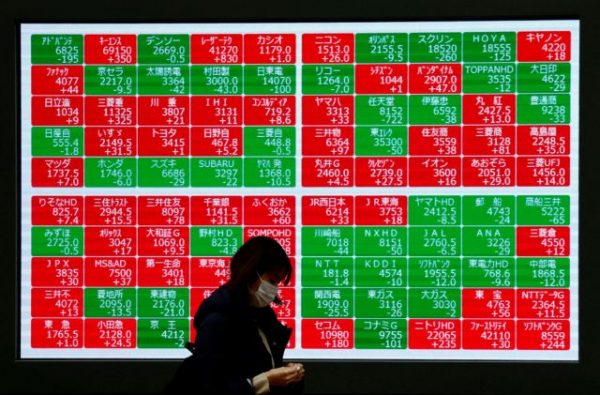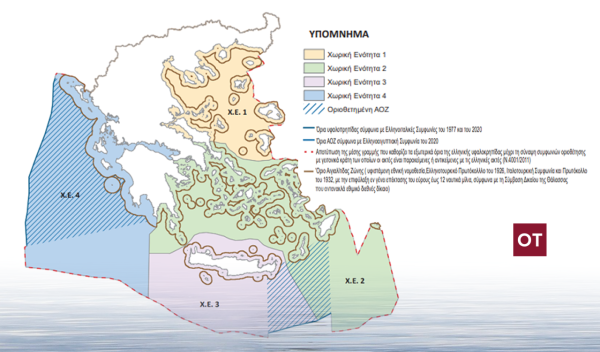
The Greek economic agenda for 2023 revolves around 4 vital pursuits: return to a primary surplus of 1%, absorption of the Recovery Fund resources, upgrading to the investment grade and political stability.
For the first time since 2010, Greece is proceeding without enhanced supervision, away from the aura of the memoranda. But it still hasn’t escaped the stigma of the 2009 crisis as it hasn’t acquired the markets’ rubber stamp , i.e. the investment grade. This makes Greece‘s borrowing more “sensitive” to negative changes in the international climate and to domestic variables such as elections and fiscal imbalances.
Challenges
Greek economy enters yet another globally uncertain year. As its legacy it boasts a cash flow of 30 billion euros, a deficit of 1.6-1.7% and growth of around 6%. In addition to the economic goals, the Greek economy also faces major challenges and risks. Among the stakes – amid high inflation, interest rate hikes by the ECB, a European recession – is the dilemma between macroeconomic stabilization and fiscal sustainability.
Tackling inflation, taking only targeted support measures and reducing public and private debt are some of the things the government has to deal with. Alarms concern the possibility of the persistence of inflation, a large reduction in GDP, the delay in the formation of a government after the elections, the appearance of a new generation of non-performing loans and debts and geopolitical developments.
The government expects 2023 to be better in terms of price reduction. The budget incorporates the assumption that oil prices will be at the level of 85 dollars per barrel and natural gas will have an average price of 120 euros per megawatt hour. At this stage, the price for January delivery contracts has dropped to 76 euros per megawatt hour.
Two critical waystations
January brings first two crucial waystations. In the first month of the year, the first round of evaluations begins. There the intentions of the investors will be seen in view of the spring elections. Depending on the messages, it will then be decided by the Public Debt Agency whether it will attempt its first exit to the markets. The goal is for the state to raise about 7 billion Euros for 2023.
In the same month, the government’s financial staff has an “appointment” with Hellenic Statistical Authority-ELSTAT for the primary result of the 3rd quarter for 2022. The most critical month of 2023 for the fiscal year 2022 – and therefore for the space required for new state relief interventions – is this coming February.
From the middle of February and especially in March, the financial staff will have measured expected revenue, so as to safely record the 2023 strategy. Also in March, ELSTAT will announce the results for the growth in 2022. This means that the government will have official data on whether the growth rate will eventually exceed the current forecast of 5.2%. The extra amount will be channeled into new interventions and generally creates a positive momentum.
HOMES
Fitch, which rates Greece at BB, two notches below investment grade, makes a dent in January. Investment grade recovery is not expected before the spring elections. More important are the next scheduled assessments after the elections are held. From Fitch they are scheduled for July 8 and October 7.
In March, DBRS (March 10) and Moody’s (March 17) are expected to opine on the economy’s rating. It is possible that Moody’s will reduce the distance from the other rating agencies (it keeps Greece three places below the investment rating at Ba3). The second ratings are expected in September. In 2022, Standard & Poor’s upgraded to BB+, the Canadian house DBRS to BB high and the German house SCOPE to the BB+ level.
INVESTMENTS
Absorption of the resources of the Recovery Fund will bring an increase in growth to 1.9 percentage points. It will boost investment which is estimated to increase by 15.5% over 2022.
GROWTH-INFLATION
Growth is expected at 1.8% (0.3% in the Eurozone) and for 2022 at 5.2%. The Bank of Greece sees GDP in 2022 at 6.2% and in 2023 at 1.5%. It predicts inflation of 9.4% this year and 5.8% for 2023.
SURPLUS
Return to a surplus of €1,668 million or 0.7% of GDP for 2023. For 2022, it will be in a deficit of €3,408 million or 1.6% of GDP. The debt is estimated at 355,000 million euros or 168.9% and for 2023 at 357,000 million euros or 159.3%.
Latest News

ECB Cuts Interest Rates by 25 Basis Points in Expected Move
The ECB’s Governing Council opted to lower the deposit facility rate—the benchmark for signaling monetary policy direction—citing an updated assessment of inflation prospects, the dynamics of underlying inflation, and the strength of monetary policy transmission.

Current Account Deficit Fell by €573.2ml Feb. 2025: BoG
The improvement of Greece’s current account was mainly attributed to a more robust balance of goods and, to a lesser extent, an improved primary income account

Hellenic Food Authority Issues Food Safety Tips for Easter
Food safety tips on how to make sure your lamb has been properly inspected and your eggs stay fresh.

Greek Kiwifruit Exports Smash 200,000-Ton Mark, Setting New Record
According to data by the Association of Greek Fruit, Vegetable and Juice Exporters, Incofruit Hellas, between September 1, 2024, and April 17, 2025, kiwifruit exports increased by 14.2%.

Easter Tourism Boom: Greece Sees 18.3% Surge in Hotel Bookings
Among foreign markets, Israel has emerged as the biggest growth driver, with hotel bookings more than doubling—up 178.5% year-on-year.

Greece to Launch Fast-Track Tender for Offshore Hydrocarbon Exploration
Last week, Papastavrou signed the acceptance of interest for the two Cretan blocks, while similar decisions regarding the two Ionian Sea blocks were signed by his predecessor

American-Hellenic Chamber of Commerce to Open Washington D.C. Branch
AmCham's new office aims aims to deepen U.S.-Greece economic ties and promote investment and innovation between the two countries

Why Greece’s New Maritime Spatial Plan Is a Geopolitical Game-Changer
This landmark development is more than just a bureaucratic step — it's a strategic declaration about how Greece intends to use, protect, and assert control over its seas

Eurozone Inflation Eases to 2.2% in March
Compared to February, inflation decreased in 16 member states, remained unchanged in one, and rose in ten.

Bank of Greece: Primary Gov. Surplus €4.1b Jan.-March 2025
The data released today by the Bank of Greece revealed that the central government’s overall cash balance recorded a surplus of €1.465 billion in the first quarter of 2025, compared to a deficit of €359 million in the corresponding period of 2024.








![Πλημμύρες: Σημειώθηκαν σε επίπεδα ρεκόρ στην Ευρώπη το 2024 [γράφημα]](https://www.ot.gr/wp-content/uploads/2025/04/FLOOD_HUNGRY-90x90.jpg)
































 Αριθμός Πιστοποίησης
Αριθμός Πιστοποίησης